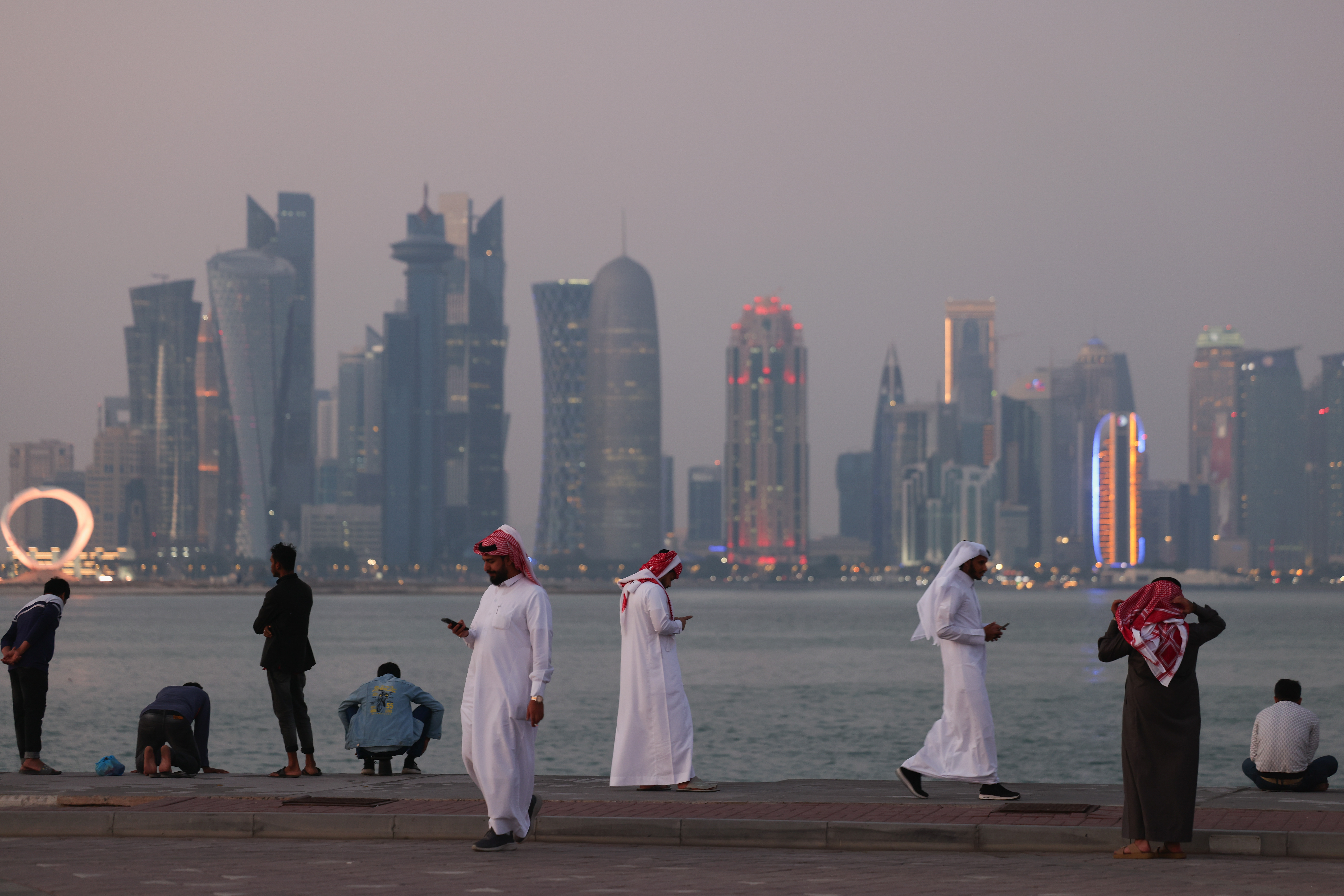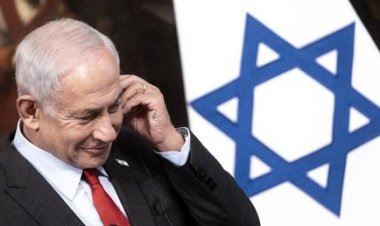Trust Issues with Qatar Persist in Trumpworld
The Gulf Arab state maintains a complicated relationship with the United States, which has repercussions ranging from the situation in Gaza to Texas A&M University.

In February, Texas A&M’s Board of Regents decided to phase out the Doha campus, a move that shocked its hundreds of students, faculty, and others in the city, who report being caught off guard by the lack of consultation or prior notice. According to A&M’s leadership, the decision stemmed from a need to concentrate resources domestically and a response to instability in the Middle East.
I find those explanations unconvincing. The wealthy Qatar Foundation—a state-supported nonprofit—funds A&M's operational costs, along with those of other U.S. institutions located in the advanced Education City neighborhood. Moreover, instability in the Middle East is hardly a new phenomenon; A&M's campus, primarily focused on engineering, was launched in 2003, coinciding with the U.S. invasion of Iraq. In fact, Qatar itself is often viewed as a relatively safe hub in a turbulent region.
Many believe that U.S. politicians, particularly the Republicans overseeing Texas universities, may have pressured A&M to shut down the campus due to prevalent misconceptions about Qatar. Just weeks prior, a report from a group studying antisemitism claimed that Qatar might leverage the A&M campus to gain access to U.S. national security research. A&M’s president denounced the report as "false and irresponsible," asserting it had no bearing on the closure decision, yet the proximity of the two events raised questions.
“As I see it, this is all about politics and a general lack of understanding regarding this place,” said Francisco Marmolejo, a senior official at the Qatar Foundation, when I pressed for insight into the closure's reasons.
My visit to Qatar was motivated by a desire to grasp the geopolitical strategies of this small yet extraordinarily wealthy Gulf nation, especially in light of Donald Trump's anticipated return to the U.S. presidency. Many of Trump's allies have long promoted an anti-Qatar agenda. Therefore, I was startled to learn about A&M's planned withdrawal—an issue that had largely escaped the attention of U.S. national media—which I perceived as indicative of the potential repercussions stemming from Qatar's uniquely flexible diplomatic stance.
In essence, Qatar aims to be a friend to all. The nation accommodates representatives from groups such as Hamas and the Taliban while simultaneously hosting a U.S. embassy and military base; Israeli officials occasionally visit, illustrating Qatar's mediating role in various global conflicts. This diplomatic approach has become a cornerstone of Qatar's foreign policy, granting it significant influence.
However, this strategy has also exposed Qatar to skepticism, particularly from the U.S. and Israel, about whether it is genuinely an ally to anyone. Critics question the wisdom of relying on Qatar as a partner or mediator.
As a monarchy, Qatar faces scrutiny over diverse issues, from its human rights practices to its financial support for various U.S. think tanks and the activities of its Al Jazeera media network. Increased scrutiny has been especially pronounced in the past year, as Doha has attempted to facilitate a resolution to the Israel-Hamas conflict. Critics, including Israeli leaders like Prime Minister Benjamin Netanyahu and various pro-Israel advocates, have expressed dissatisfaction with Qatar's perceived lack of effectiveness.
In the past year, numerous U.S. lawmakers have urged the Biden administration to pressure Qatar to more forcefully engage with Hamas regarding a ceasefire and the release of hostages. “Please make clear to Qatar that it will be held accountable for every hostage not brought home,” wrote one congressional letter.
Lawmakers signing such letters include Sen. Marco Rubio, a potential pick for Secretary of State under Trump, and Rep. Mike Waltz, who is set to be Trump’s national security advisor. Many of Trump's other aides also have staunch pro-Israel stances.
While skepticism about Qatar exists within Democratic circles, much of the recent criticism has emerged from the U.S. right.
Doubts surrounding Qatar's relationships with Iran—a nation with which it shares a significant gas field—and the Muslim Brotherhood have further tarnished its image in the West and strained ties with neighboring Arab states who regard those entities as threats.
In 2017, several Arab nations severed ties with Qatar but re-established relations in 2021. Nevertheless, these countries still harbor suspicions regarding whether Qatar aims to undermine their governments.
Qatari officials and their advocates often dismiss such criticisms. They emphasize that the U.S. has historically tolerated Hamas's presence in Qatar to enable communication with the group. Qatar has purportedly sent financial aid to Gaza under Hamas control, claiming the funds—potentially amounting to billions—were intended to assist civilians. Reports suggest Netanyahu endorsed such financial support as a way to maintain stability in the region.
Critics, however, maintain that Qatar has effectively financed Hamas's activities and view pressuring Qatar as a means to constrain Hamas.
When I inquired whether Qatar might modify its approach under Trump to align more closely with U.S. interests—supporting Israel and opposing Hamas and Iran—I gathered a sense that Qatari officials hope to maintain their current stance. Analysts suggested that Trump’s team will likely adopt a more nuanced perspective once in power and deal with the Middle East's intricacies.
As one Qatari official articulated, "Our partners and friends need an ally in the region who can engage with political actors they cannot." I granted him and several others the anonymity to speak candidly about such delicate topics.
Qatar's population is about 3 million, with only 10 percent being citizens, and a small group effectively governs. There are signs that this ruling group feels uneasy about a Trump-led administration and the anticipated Republican dominance in Washington.
The emir and prime minister were quick to meet with Trump even prior to the election and reportedly welcomed one of his envoys to discuss negotiations surrounding Israel and Hamas, despite his presidency not officially commencing yet.
“Qatari officials are concerned,” said Tarik Yousef, a Middle East analyst based in Doha. “They do expect, potentially, a backlash against the mediation role Qatar attempted to play during the past year, especially with the new administration's strong ties to Israel, which could bring forth significantly serious repercussions.”
Nevertheless, Majed Al-Ansari, spokesperson for Qatar's foreign ministry, noted to me that “Qatar’s engagement with the Trump transition team is going very well.”
“Each time we engage, we address active issues, and the tone remains positive because they acknowledge the work,” he added.
It struck me how frequently both current and former U.S. officials across party lines commend Qatar for successfully navigating sensitive issues that others would avoid.
Qatar helped negotiate an agreement to conclude the U.S. conflict in Afghanistan, has attempted to mediate the crisis in Venezuela, and has played various other critical roles outside the limelight. Following the Taliban's takeover of Afghanistan, Qatar's Education City accepted the American University of Afghanistan, which aims to educate girls in the country who lack access to schooling due to Taliban restrictions.
“Qatar is a complicated country, but in certain respects, it is one of the most reliable and transparent allies in the region,” a senior Biden administration official remarked.
Another U.S. official familiar with Middle Eastern affairs stated that the Qataris—who host thousands of U.S. troops at the Al-Udeid base—are exceptional defense partners who are typically responsive to U.S. requests.
Yet, that official pointed out that during negotiations with Hamas, the Egyptians are typically more effective than the Qataris at applying pressure on the group.
Some critics argue that the U.S. should sidestep Qatar and engage directly with entities like Hamas if necessary. While the U.S. generally avoids such engagements due to political sensitivities, relying on Qatar complicates the message to those groups, according to critics.
“If Qatar is the sole option, the U.S. is better off forgoing a middleman altogether,” asserted Ariel Admoni, an Israeli scholar focusing on Qatar.
Trump’s assessments of Qatar have varied significantly, including accusations of its support for terrorism. Nevertheless, his son-in-law Jared Kushner reportedly maintains substantial financial connections to Qatar, as do numerous individuals close to Trump. According to a former aide, despite “the anti-Qatar sentiment among some Trump supporters,” the emir of Qatar is likely to receive an invitation to the White House annually during Trump’s term.
Yousef, the analyst based in Doha, suggested that Qatar may need to diversify its alliances moving forward. “You should strengthen ties with the Saudis, develop relationships with the Emiratis, and engage more seriously with Asian powers, particularly the Chinese,” he advised.
However, a former Trump aide warned that getting too cozy with Beijing, especially concerning cybersecurity and technology, might raise Trump's ire.
Qatar does have certain red lines it won’t cross; notably, it was among the few Arab states to refrain from seeking a rapprochement with Syrian President Bashar Assad, even delegating its embassy responsibilities in Doha to Syrian opposition members. As Assad faced increasing peril this month, Qatar has been active in convening various external powers involved in the Syrian situation.
Qatari officials assert that their mediation efforts are designed to stabilize a volatile region. Nevertheless, the blowback from their willingness to engage multiple sides can be significant.
During my time in Doha, I attended a reception hosted by the Qatar Foundation, where I met several individuals connected to the Texas A&M campus, which will undergo a phased closure over the next four years due to contractual obligations. “It was a total shock,” said one student regarding the planned closure. “But what can you do? We have a beautiful family there.”
Qatari government officials refrained from providing comments on the situation regarding A&M.
Criticism directed at Qatar is unlikely to subside, whether it is warranted or unfounded. Nonetheless, I wouldn't bet against Doha's resilience.
No administration—be it Democratic or Republican—is likely to forgo engagement with Qatar. While the nation may associate with some controversial figures, it is those very figures that need to be addressed. At this stage, Qatar's role in numerous international arenas renders it a critical player that would be difficult to replace.
Camille Lefevre for TROIB News
Find more stories on Business, Economy and Finance in TROIB business












